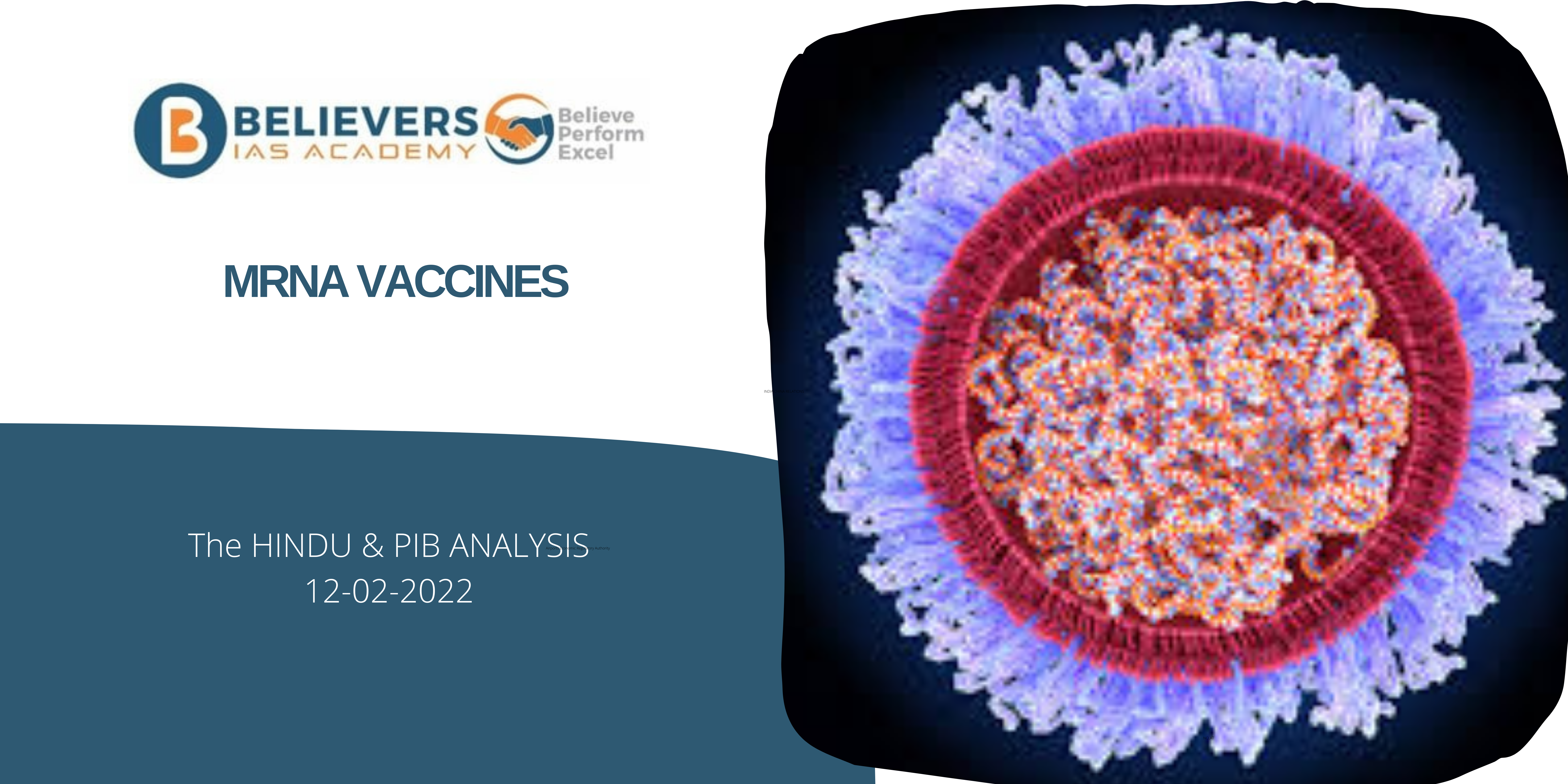mRNA Vaccines
Context:
- Data from human trials of India’s first homegrown mRNA COVID-19 vaccine are likely to be presented to authorities for evaluation by the end of the month, and company officials are aiming to roll out the product before April.
- The mRNA vaccine being developed by Pune-based Gennova Biopharmaceuticals is currently in phase 2/3 trials to evaluate the safety, tolerability and immunogenicity of the candidate vaccine in healthy subjects.
Background:
- Globally, mRNA vaccines have been at the vanguard of inoculation programmes in the United States and Europe because they exploit recent advances in molecular biotechnology and are said to be quicker to manufacture than older, well-established vaccine design principles.
About:
- Messenger RNA or mRNA technology works by teaching our cells to recognize and protect us against infectious diseases.
- One of the challenges with this new technology is that it must be kept cold to maintain stability during transport and storage.
- mRNA vaccines trick the body into producing some of the viral proteins itself.
- They work by using mRNA, or messenger RNA, which is the molecule that essentially puts DNA instructions into action.
- Inside a cell, mRNA is used as a template to build a protein.
Mechanism
- To produce an mRNA vaccine, scientists produce a synthetic version of the mRNA that a virus uses to build its infectious proteins.
- This mRNA is delivered into the human body, whose cells read it as instructions to build that viral protein, and therefore create some of the virus’s molecules themselves.
- These proteins are solitary, so they do not assemble to form a virus.
- The immune system then detects these viral proteins and starts to produce a defensive response to them.
Significance
- There are two parts to our immune system: innate(the defences we’re born with) and acquired (which we develop as we come into contact with pathogens).
- Classical vaccine molecules usually only work with the acquired immune system and the innate immune system is activated by another ingredient, called an adjuvant.
- Interestingly, mRNA in vaccines could also trigger the innate immune system, providing an extra layer of defence without the need to add adjuvants.
Source The Hindu




